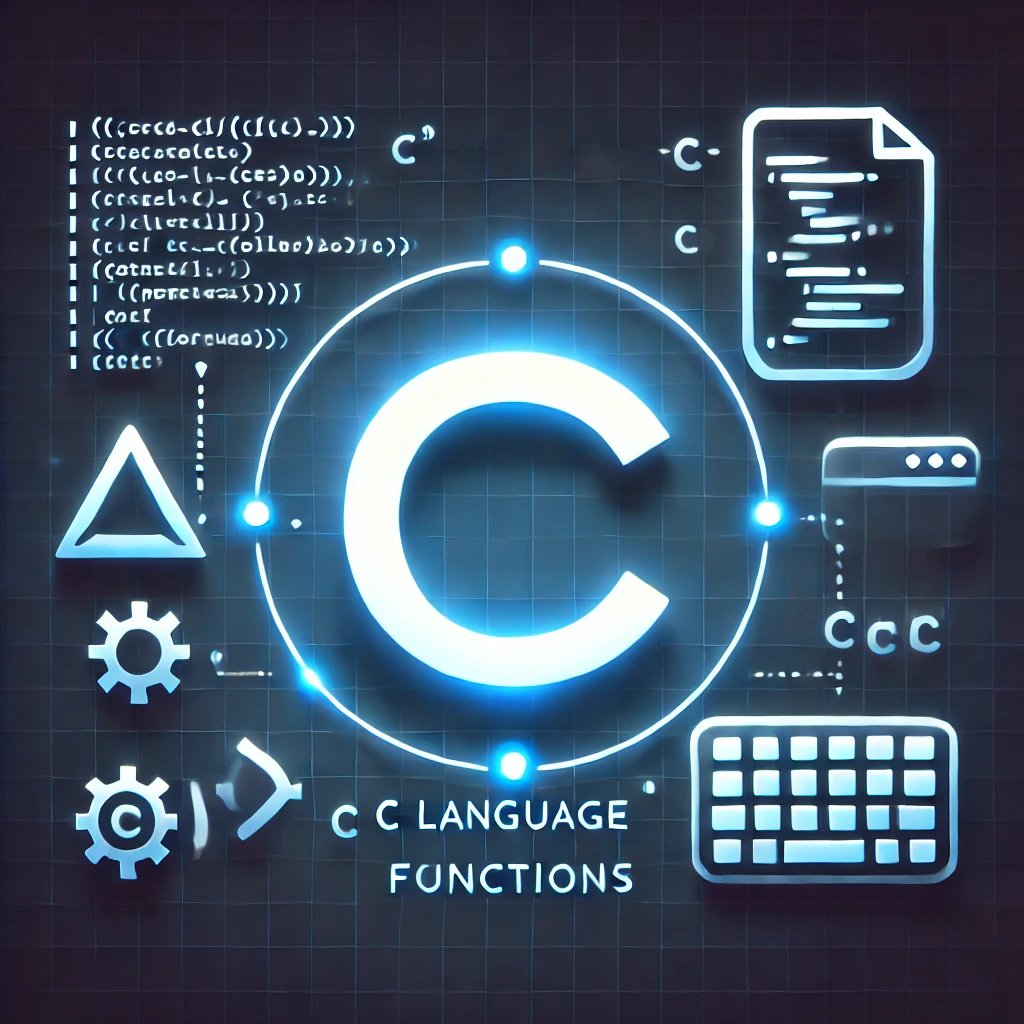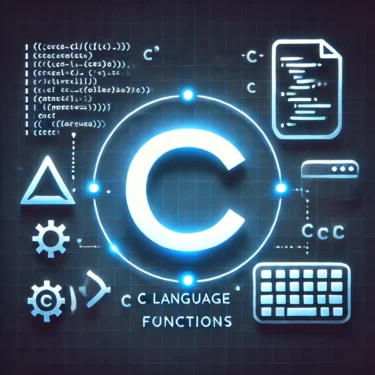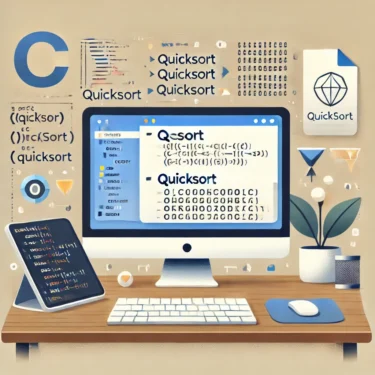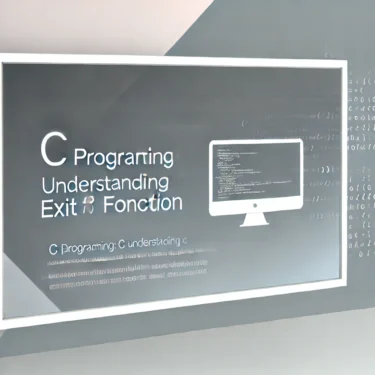1. What Are Functions in C? Their Basic Roles
In C programming, a function is a block of code designed to perform a specific task. Functions are crucial for organizing code, avoiding repetition, and improving program structure. Using functions properly increases code reusability and helps reduce bugs. In this article, we’ll categorize frequently used C functions and explain their purposes and usage.
2. What Is the Standard C Library? Overview and Practical Use
Overview of the Standard C Library
The C standard library is a collection of built-in functions that help programmers efficiently perform various operations. Common tasks like string manipulation, input/output processing, memory management, and mathematical calculations are often covered by the standard library. Utilizing these functions saves time, avoids reinventing the wheel, and ensures reliable code.
How to Use the Standard Library
To use functions from the standard library, you need to include the corresponding header files. Header files contain the function declarations and prototypes. By including them at the top of your program, you can freely use the provided functions.
#include <stdio.h>
#include <stdlib.h>
#include <string.h>3. List of Functions by Category
String Manipulation Functions
C offers many standard library functions for handling strings. Here are some commonly used ones:
strcpy
Copies the source string to the specified destination buffer.
#include <stdio.h>
#include <string.h>
int main() {
char source[] = "Hello, World!";
char destination[50];
strcpy(destination, source);
printf("Copied string: %s\n", destination);
return 0;
}strcat
Concatenates two strings.
#include <stdio.h>
#include <string.h>
int main() {
char str1[50] = "Hello";
char str2[] = ", World!";
strcat(str1, str2);
printf("Concatenated string: %s\n", str1);
return 0;
}strlen
Returns the length of a string.
#include <stdio.h>
#include <string.h>
int main() {
char str[] = "Hello, World!";
size_t length = strlen(str);
printf("String length: %zu\n", length);
return 0;
}Input/Output Functions
C provides several functions for standard input and output operations.
printf
#include <stdio.h>
int main() {
printf("Hello, World!\n");
return 0;
}scanf
#include <stdio.h>
int main() {
int number;
printf("Enter a number: ");
scanf("%d", &number);
printf("You entered: %d\n", number);
return 0;
}fgets
#include <stdio.h>
int main() {
char buffer[100];
printf("Enter a string: ");
fgets(buffer, sizeof(buffer), stdin);
printf("You entered: %s\n", buffer);
return 0;
}Memory Management Functions
C uses the following functions for dynamic memory allocation:
malloc
#include <stdio.h>
#include <stdlib.h>
int main() {
int *ptr = malloc(5 * sizeof(int));
if (ptr == NULL) {
printf("Failed to allocate memory.\n");
return 1;
}
printf("Memory successfully allocated.\n");
free(ptr);
return 0;
}free
#include <stdlib.h>
int main() {
int *ptr = malloc(sizeof(int));
free(ptr);
return 0;
}4. Essential Functions for C Beginners
For those just starting to learn C, the most important functions to master first are related to standard input/output and basic string handling.
printf/scanffgetsstrcpy/strlenmalloc/free
5. Summary
Functions in C are powerful tools for writing efficient programs. Understanding each function’s role and how to use them appropriately is key to successful programming.




